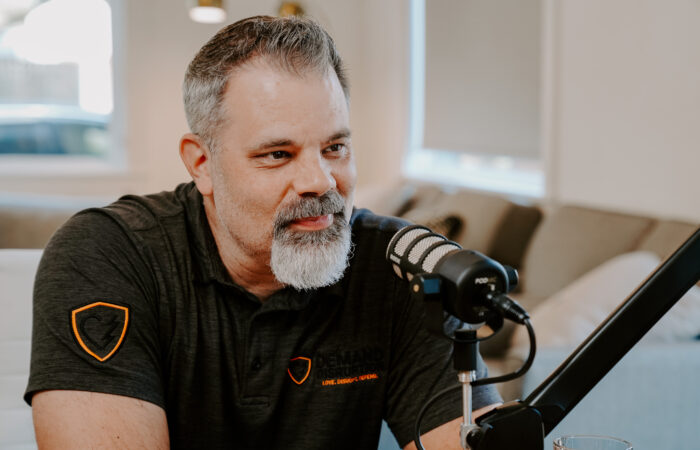A study in Houston claimed there are more brothels than Starbucks and McDonalds. That statement always grabs people’s attention, but an important detail is often left out. Most women exploited in these brothels are Asian migrants or vulnerable Asian-Americans. These women are not only victims of the sex trade, but also of manipulation in debt bondage and loan sharking. Youngbee Dale has experience working in South Korea, as well as serving as an expert witness in Asian trafficking cases. Her insights will help you better understand the complex network of organized crime that is unique to the Asian sex trade.
To learn more about Youngbee’s research visit here »
Video Version
Audio Version
Thank you for listening!
If you’d like to share your thoughts on this episode:
- Leave a comment below this blog post.
- Share your biggest takeaway on Instagram stories. Most importantly, be sure to tag @elijahrising so we can see them.
If you have found our podcast helpful, please take a minute to support this program by:
- Leaving a review on iTunes—your reviews help us reach new audiences, and we love to read your responses.
- Subscribe on iTunes, Spotify, or YouTube.
- Share this podcast on Instagram, Facebook, or Twitter.
Transcription
John:
Hey, you guys. Welcome back to The Elijah Rising Podcast. I’m your host, John LaChappelle. I’m joined with our communications director, David Gamboa, and our special guest today, Youngbee Dale. She is the CEO of Dale Consulting. She’s an expert witness and a law enforcement trainer in Asian trafficking and organized crime. Yeah, that was a lot. We are super honored to have you, Youngbee. We just want to jump right in. I think one of the first things that we’ve been talking about this week is we’ve had an understanding of this network model of how to reach women that are in trafficking, specifically, the Asian demographic, but you’ve been sharing with us. There’s another model that the traffickers are using. Can you talk and explain a little bit of that model?
Youngbee:
So it’s hard to explain without the picture, but I’m going to do my best.
John:
Okay.
Youngbee:
So I stay there multiple times throughout this week, for the past three days, two days. So this organized rev… This is the commercial sex trade in the Asian culture is mostly feeding the revenue of organized criminals. So this, really, you’re looking at the RICO case, racketeering, forget… Organized criminal case, as opposed to straight up prostitution or just domestic minor sex trafficking pimping cases. It’s way more involved and there’s multi-layers of a complexity behind the massage parlors. It’s not just a one or two massage parlors, there’s multiple entities. Massage parlors are also, in between the massage parlors, as brokers, as financier, as a CPA, lawyer, you name them, and they all getting involved in different process of exploitation.
John:
Yeah. One of the things that we’ve heard from our volunteers, people that go out on the street, is why don’t you just shut this place down? And as we’ve been talking about, one place shuts down and another one pops up. Can you speak to why we can’t just shut these places down?
Youngbee:
So as a successful criminal who knows what he or she’s doing to run the brothel model, the one thing that I want to do is to put my name out there, to use, shut down my business and be done with it. So they figure out 20, 30, 40 years ago. Okay. So what I will do as a true investor, the true profiteer, I will hire someone to open up the brothel. Lately, there are a lot of victims of sex trafficking who, of course, to open up the brothel to also perform massage parlor.
Youngbee:
So if you actually look at the training program that are pushed out by a lot of other nonprofit, they said that these managers are sometimes perform prostitution. These are not on other managers, a part of the criminal network. These are the… Actually, at once, if you see a woman who is engaging prostitution or commercial sexual activities, and they’re also managing the brothel, chances are they’re, of course, to open up the brothel under debt bondage.
John:
Yeah. And you just hit a buzz word. Can you talk about debt bondages?
Youngbee:
So debt bondage… This is complicated. I don’t even know if I can’t explain to…
David:
I did the math.
Youngbee:
Yeah. So just involves very complex financial… How do I say it? Like a…
David:
Manipulation, it’s like…
Youngbee:
Manipulation and there’s different… There’s a part of the initial interest rate that they charge that if she borrowed $20,000, in terms of with the 20%, 10% daily interest, right? Then, she’s responsible for paying 10% of the $20,000 interest rate every day. So she actually owes… The next day she owes $22,000 instead of $20,000.
Youngbee:
Also, initially, if she is borrowing $20,000, she’s not getting $20,000, she is supposed to get $18,000. So that’s just part of how loan sharking system work. It’s called initial interest rates. Han Ija [foreign language 00:04:09], right? So it’s their practice to take out. They charge them for the jack, the $20,000, the 10% of the $20,000, but she is, as a victim, is responsible to pay the interest rate based on the initial $20,000, even though she’s only getting $18,000. So this is one out of multiple loan sharking practice called debt bondage. This is one out of multiple systems.
John:
Yeah. And one of the things that we just learned recently from a Chinese pastor is there are young women who are taking out outrageous loans just to get to America and you were saying yesterday, we have social security, and driver’s license, and benefits, and these different things. Can you bridge the gap for our audience why someone, like a young girl, why she would take out just an exorbitant amount of money just to get to the United States?
Youngbee:
So if you’re thinking about their… You think of their travel expense, it’s not just coming straight from China to America. So that’s not going to cost as much as, let’s say, they take out 30, $40,000 of debt, right? That 30 or $40,000 debt includes the Snakeheads. There’s one route that’s familiar is from China to…
David:
Okay. You said Snakehead?
Youngbee:
Yeah.
David:
What is that?
Youngbee:
So Snakeheads…
David:
That’s a new term.
Youngbee:
Snake… Okay. So Snakeheads are organized criminals. So, basically, they include the multiple business owners. A lot of time, these business owners owns massage parlor, or sometimes that Chinese, sometimes they own just restaurants or just regular business practice, but they’re investing. Right? Giving this money that the part of $40,000 goes into her debt and these people are making money off of this woman’s interest rate.
Youngbee:
So the individuals are working together and then, also, they’re possible Snakeheads that they work as an enforcer. So those are organized criminals. Okay. So Snakeheads. So you have multiple entity of Snakeheads that are connected through a relationship, through a word of mouth, whatnot.
Youngbee:
So, let’s say, there’s one lady who came to Korea, not Korea, the United States from China, the smuggling route comes from China to Korea, no China to Japan and then, she went to Argentina and then, moved to Mexico.
John:
Wow.
Youngbee:
And then, going to either Arizona, or what’s the other place… In New Mexico or California. So there’s just one route out of multiple routes that they use. So this is the money that they owe because it’s using fraudulent visa, fraudulent this, fraudulent that, on top of the multiple passport.
John:
Yeah.
Youngbee:
So the costs a lot of money than just paying the tickets to come to the U.S. straight from China.
David:
Wow.
John:
We are so… I don’t know. Unaware of the process and I think one of the things that we’ve been really challenging ourselves with is how do we reach the Asian community? It’s so different from the Latin American, from Caucasian, African American demographic. Can you speak to some of the culture, some of the mannerisms, the heritage of the Chinese Asian community and why it’s so specific in how we reach them?
Youngbee:
Well, they’re not… They don’t trust us outsiders to begin with, and you don’t speak the language. You don’t look like them. Right? So that’s a big challenge, right?
David:
Yeah. We walked into the place and they’re like who are these people?
John:
Yeah.
Youngbee:
Right? So on the top of that, this is a very trust based community and society and when you’re involved in commercial sex, and especially, whether it’s voluntarily, involuntarily, she thinks she’s involved in voluntarily, but it could just be that she’s manipulated into the whole system. Either way, she’s not a victim and she’s a prostitute. Right? And there’s a lot of shame on cultural nuance that’s tied to where she has been engaged into, whether she was a victim or not. Right? So even if she’s a victim, the truly victim, she’s a victim, right?
John:
Yeah.
Youngbee:
And if she goes back home and people know about it or whatever, then, she’s excommunicated.
John:
Yeah.
Youngbee:
So I actually know this victim from New York. So somehow the entire community of Flushing found out that she was a victimized through commercial sex and now she doesn’t want to stay in Flushing because she was outcasted because she had been raped or whatever.
John:
Yeah.
Youngbee:
So she’s no longer being able to be part of the community. She’s excommunicated. She’s like, what’s the point of being here. I want to go back to China.
John:
Wow. So you just finished a meeting with the Houston Police Department. Could you speak to what you believe is a solution that law enforcement, in general, can take, the responsibility they can own, in this line of work?
Youngbee:
So I think that it’s really… I was thinking about this as I was training, not just the local police, but working with the U.S. attorneys and working with the cases of federal level that I never understood why they couldn’t extract the information that I could extract. Well, nobody’s expecting me to extract the information or read the in between the line or to read the body language.
John:
Yeah.
Youngbee:
From the Hispanic victim. Right? I mean that’s a high, very high, tall order for you to expect some random U.S. attorney, who born and raised in the U.S., has nothing to do with Asian community or culture, let alone speak the language, or been to these countries. So I think those are challenges that they run into, and also, on top of that, we don’t look at this as an organized criminal activity because we have, in the past, we have tried to kill the narrative of this is organized crime.
Youngbee:
I don’t know why and how it happened, but we have been killing that narrative of this is organized crime. Where the study is pretty clear, 75% of the commercial sexual trade and their profit of organized criminals come from well the… Profit of a commercial sex trade make up 75% of the revenue for organized criminals. So I think we need to take a different approach instead of using just a special victims unit, vice unit, or however we traditionally approached the domestic minor sex trafficking, instead of approaching that, we look at it for what it is, which is organized crime.
John:
Yeah.
Youngbee:
I don’t think I have mentioned this, but in 2008, when the Korean government cracked down the organized criminals, most organized criminals moved to the United States. Because we, it just asset, but they don’t just move just random places. They move to a place where there’s friends or connections. Right?
Youngbee:
And Houston, and Los Angeles, or New York happen to be one of those where you can find a lot of connection of other, right? And Korean American or individuals who have known, that were fugitives who are from South Korea. So that’s probably why we have a lot of problems because they don’t come here to stop committing crime. The main bread and butter is by committing crime in South Korea, they get… Chances are, they’re going to come here. That’s all they know. Their connections are based on organized crime. Their connections are based on visa fraud or illicit finance or loan sharking. That’s how they going to make their money off of.
John:
Yeah. So really, you’re exposing the underbelly of this thing and for us as a nonprofit that has been in the work for the last decade, other organizations that have been in the work for X amount of years, what do you say to us? What do you say to nonprofits? Anti-human trafficking organizations who are hearing this information and going, okay, what we’ve been doing has been somewhat ineffective. How would you encourage the nonprofit that’s listening? How would you encourage Elijah Rising in this field, specifically, to the Asian community?
Youngbee:
Well, first of all, I think that you need to be educated, understand the basic network model. The second of all, if you are in the jurisdiction where your law enforcement is traditionally just looking at it more of a vice unit problem, prostitution, or it’s just a problem out of sexual assault, domestic violence, or what’s the other one, special victims, then, I want to encourage to urge your law enforcement to tackle the all entire network of problems. That tell them that this is organized crime, that they need to be trained in money laundering, tax evasion, racketeering, investigation, and within the money laundering, obviously, there are loads of problems. There are aspects that you need to be trained.
David:
But even in that, the money laundering and tax evasion strategies are unique to the Asian criminals.
Youngbee:
Right.
David:
Different from other.
Youngbee:
Yeah. So that’s another challenge. I think it’s a lot of law enforcement wants to just get in there and trying to tackle in more with domestic minor sex trafficking cases, expecting the survivors to answer who the real perpetuator is. Well, by design within the Asian criminal world, that survivors generally don’t know who their real perpetuators are. That’s just not how the criminals operate.
Youngbee:
So I will encourage the nonprofits to, instead of getting involved in survivors, if she’s willing to testify, that’s great, but if she’s not, then, urge your authority to go after the profiteer. Who is the ultimate profiteer? Are they trained in to… Do they understand the culture, not just the culture of the victims, but culture of the criminals, how they practice business, what are the popular tax evasion or money laundering method? Sort of thing.
John:
Wow. So we have volunteers, we have single moms, we have college students. We have people that go on intervention. They go specifically into the illicit massage businesses, the strip clubs, different venues. What would you say? Not only to the nonprofit organization, but what would you say to the volunteer? How would you encourage the everyday individual who has a heart, a burden for this work, but is now hearing about the underbelly, this systemic injustice that is really infiltrated every sector of our society?
Youngbee:
I would suggest that, first of all, instead of just open up the non-profit where start running the shelter when you have no training whatsoever, instead of doing that, maybe you can support the non-profit to hire a Asian advocate who can speak… Not just speak the language, but also understand the culture.
John:
That’s really good.
Youngbee:
I think that would be the most effective way to support these victims. Also, urge the law enforcement to go after, again, the more of the holistic network of the problem. Strengthen the organized criminal unit, as opposed to just focus on special victims’ unit or a vice unit.
John:
Wow. Thank you so much. There was one more thing I wanted to speak to. You mentioned some of the progressive prosecutors, how the real criminals are not being prosecuted. We’re charging and putting the woman in jail, we’re putting the manager in jail. Can you speak to some of those progressive prosecuting tendencies that are really inhibiting the real movement that we’re looking for?
Youngbee:
So you’re thinking that maybe so… You mean they’re not putting these people in jail.
John:
Yes.
Youngbee:
So they’re these before victim and whatnot, so you really don’t know what you’re talking about, right? I don’t know what else to say.
John:
Very much so.
Youngbee:
So really these people are not some 18 years old pimp, okay? Young male who’s doesn’t know what he’s doing. He doesn’t have any good example of father figures and now he decide to be a pimp and now he’s spending 5,000, $50,000 on buying Mercedes on the loan where he only made couple hundred dollars off of exploiting some victim. This is not the kind of people that you’re talking about.
Youngbee:
These are the people that I’m talking about. These network of Asian organized criminals. These are the people actually are somewhat connected to the financial institution in South Korea, ultimately. If you track down the money, the money goes back to the financial institution and in the midst of financial institution and underground market, there’s a whole lot of criminals that are profiting off of this activity.
Youngbee:
So these people are not have been doing this probably have been doing this way longer than you have. Probably way before you were born. So I think you need to take it for what it is as opposed trying to phrase it more. Oh, they need to be… Cater to their victim. These are a very Western mentality. I think that it’s not fair for anyone to look at the problem at framing a different way, as opposed to, if you’re really promoting multicultural, then, we need to look at the problem from the cultural perspective.
John:
Mm-hmm. Yeah. And so, as they pay me to do, I got to bring it back to the spiritual component. We’ve talked about this the last couple of days. We really have a responsibility to equip and activate the Church of Houston to do exactly what Youngbee is encouraging us to do and that’s to call on the Asian American Church to be educated, be trained. To equip them to go with us into the IMBs and to reach this demographic that really feels like an unreached people group, where we haven’t really been able to reach to the depth that you’re talking about because of all of the blockades and the hindrances of culture.
Youngbee:
So this is for the faith-based people?
John:
Yeah.
Youngbee:
Okay. Well, I got something else to say.
John:
Excellent.
Youngbee:
You need to start praying. Okay. Pray. So pray seems like, okay, well pray, but we got to do something practical. Well, praying is the most practical thing you could do.
John:
Yes. Absolutely.
Youngbee:
Most successful churches in America, if you look at their pastors, they’re praying. They’re in the ministry of 30, 40 years. They’re praying. That’s how they’re being successful. Joshua was successful because he was praying, right?
John:
Yes.
Youngbee:
Who else was successful? Moses was successful because he was praying.
John:
Yes.
Youngbee:
Okay? You need to pray. When you pray, there’s a strategy comes out. Okay?
John:
Yes.
Youngbee:
So when I pray, God says money laundering is a way to go. So God gives you something when you pray. So if you don’t have will to pray, ask for fire, ask for fire. Pray, okay?
John:
Back in January, many of you joined us. We did a 21 day fasting and prayer initiative and in our confusion, in our inability to really reach the Asian community, we asked God to send us help and so, really, you know this already, but I want you guys to know. Youngbee Dale is fruit of our intercession asking God for help and here we have a leading expert, a consultant who’s come alongside us. And I really want our audiences to know how can they find you? And we’re putting you out there on the center stage. If there are other nonprofits or other organizations that are hearing this and going, wow, we need someone like Youngbee on our team. What’s the best way for people to reach you?
David:
And also with…
Youngbee:
So I’ve published a studies on, also based on prayer, okay? Vision that God is giving me. I publish Beyond Massage Parlor, that’s exposing Korean sex market and the Korean sex market exploiting. I can’t remember… Beyond Massage Parlor, Google it and you will find it. And also, I published The Money Laundering in the Commercial Sex Market, Visa Fraud in the Commercial Sex Market. And just last month, maybe two months ago, I can’t remember, but Tax Evasion and Fraud in the Commercial Sex Market. So I have a whole list of things that I want to expose the criminal tactics of, not just Asian criminals, but also comparing to Hispanic and domestic entities. So you can Google them, Google Youngbee Dale, or you Google them, Google Dale Consulting, then, it’ll lead to all those different links.
David:
Yeah. We’ll link two of them in the show notes, as well.
John:
Awesome. Well, if your head is spinning, you are right where you need to be. We hope that you will either join us as we pray over this issue, or you will link in and connect with us. And again, Dale Consulting. Youngbee Dale, thank you so much for joining us on this podcast. We so appreciate you.
Youngbee:
Thank you for having me.
David:
Thank you.
John:
Thank you guys. Have a great one. Until next time.





